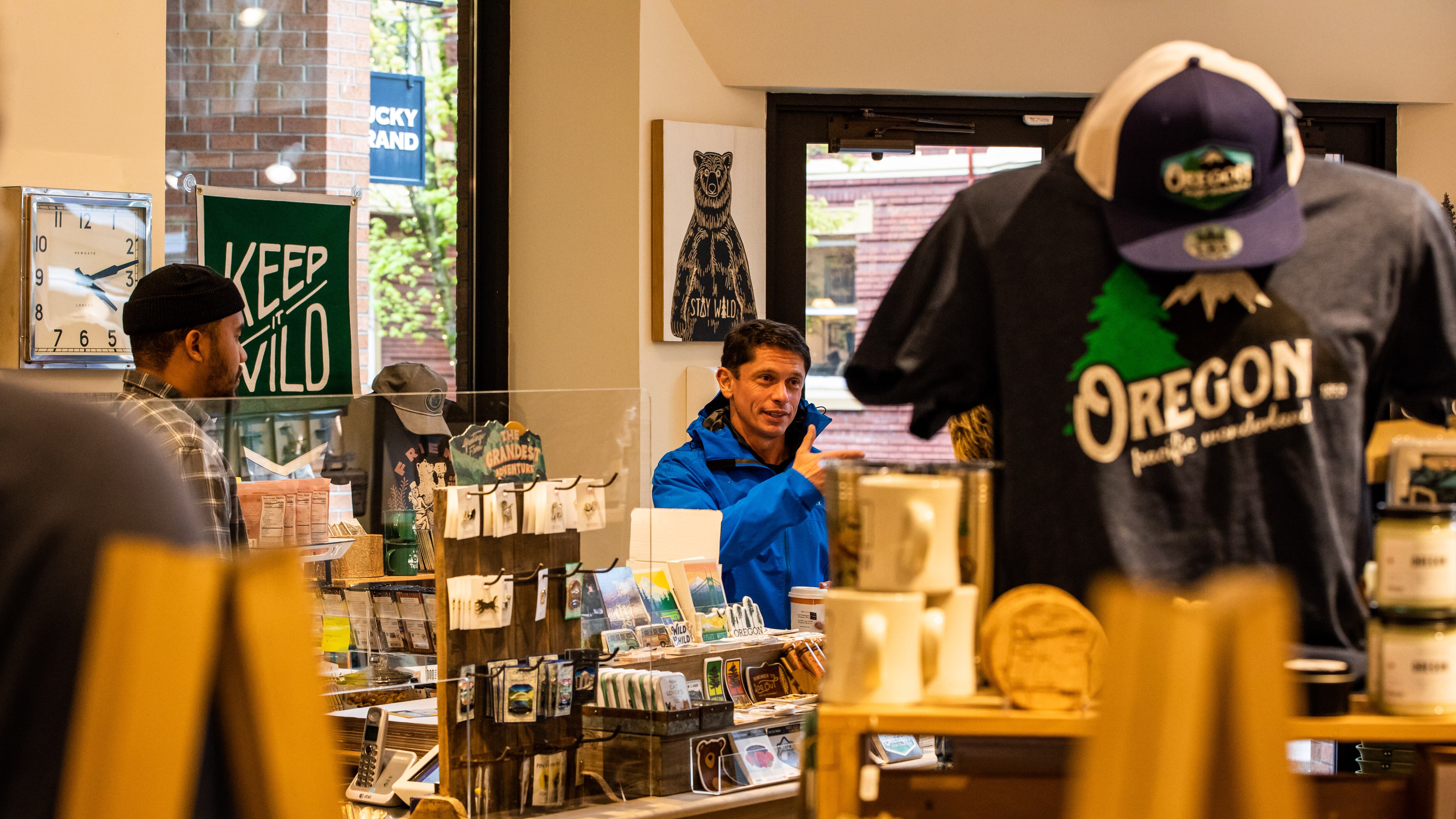In a letter sent to financial backers of onetime City Council candidate Vadim Mozyrsky, his rival Rene Gonzalez asked for their support to unseat incumbent Commissioner Jo Ann Hardesty.
That’s not an unusual tactic after a close primary. What is noteworthy, however, is how Gonzalez characterized Mozyrsky’s stance toward the November runoff.
“It was a close primary election, and our campaign very narrowly prevailed against a great candidate in Vadim Mozyrsky....I have since met with Vadim and we both agree: Portland’s future is at stake in this election,” Gonzalez wrote. “We now face the task of forging a coalition to unseat Jo Ann Hardesty in November, and we can’t do it without your help.”
Mozyrsky tells WW he was surprised to hear about the letter, because he felt it implied a strong endorsement. And Mozyrsky hasn’t endorsed in the race yet. In fact, Mozyrsky says he’s “not leaning towards either one yet.”
“I hope Rene trying to capitalize on my name is not an indication of desperation on the part of his campaign,” Mozyrsky says. “It’s disappointing he didn’t contact me about this.”
Mozyrsky confirms he indeed met recently with Gonzalez but has also reached out to Hardesty’s office for a meeting. He says he’s open to hearing about their respective platforms before he makes a decision.
“Some of the people that are supporting me are probably leaning towards supporting Rene, and others I’ve talked to are supporting Jo Ann,” Mozyrsky says.
Gonzalez tells WW he wasn’t implying an endorsement from Mozyrsky.
“If Vadim had endorsed at that time, we would have used that term in the letter. But that isn’t what this is about,” Gonzalez’s campaign manager, Shah Smith, says. “We view his primary supporters as natural allies and approached them in a way that reflects both our mutual alignment on issues that matter and exactly how important they are in the coalition to unseat Jo Ann Hardesty in November.”
In the letter, Gonzalez, a lawyer and small-business owner, pushes the message he’s used as fuel against Hardesty since the beginning: She divides the city and only speaks for a small group of loud and disruptive activists who are eroding the city.
“Her supporters are deeply motivated and committed to keeping her in office at all costs,” Gonzalez wrote. “They are the same group of loud extremists that shout down concerned residents in public meetings and work to silence neighborhood groups and community organizations that dare speak out against them.”
Implied endorsements aren’t rare during election seasons. This spring, Mozyrsky’s campaign sent out flyers that quoted WW as writing: “Vadim Mozyrsky is the unifying force Portland is hungry for.” To some WW readers, it appeared to be an endorsement. That’s not what WW wrote.
The November election will be a face-off between two candidates whose stances on the most pressing issues in Portland are nearly diametrically opposed. Hardesty has been a consistent and tough critic of the Portland Police Bureau, while Gonzalez says he will be an ardent supporter of the force and would seek to bring in more police officers immediately.
Gonzalez’s stance might match the public mood more than Hardesty’s right now: Elevated gun violence over the past year has led many Portlanders—and others up and down the West Coast—to support more law-and-order measures to quell gun violence, petty crime and homelessness.
Hardesty is opposed to homeless camp sweeps under most circumstances, while Gonzalez says homeless people must face the criminal justice system if they do certain things, like defecate publicly.
Gonzalez narrowly bested Mozyrsky in the primary to make it to the November runoff with Hardesty. Mozyrsky, an administrative law judge, attracted a massive independent expenditure campaign backed by power brokers and real estate moguls to get him elected, many of whom speculated, even Mozyrsky himself, somewhat bitterly, that it killed his chances of making it to the general.
The two candidates took different campaigning tacks, too: Mozyrsky tried to strike a policy middle ground that sometimes came off as muddled and unclear, whereas Gonzalez was more forthright about his stances.
Gonzalez has raised $253,000 by participating in the city’s small donor elections program, which matches and multiplies small to medium-sized contributions. (The program is meant to take big money out of local elections, though people have found workarounds such as independent expenditure campaigns.)
Hardesty has raised $327,500 under that same program. She has nearly 900 more contributors than Gonzalez, but on average those contributors give fewer dollars.
Five hundred contributors have given Gonzalez between $100 and $250 each, whereas Hardesty has only 248 such donors. Hardesty, meanwhile, has 1,262 donors who have given less than $25, while Gonzalez has only 523 such donors.

